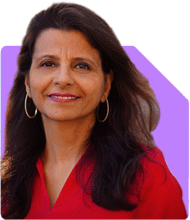Ramalingam Kalirajan |2770 Answers |Ask -Follow
Mutual Funds, Financial Planning Expert - Answered on May 10, 2024
He has an MBA in finance from the University of Madras and is a certified financial planner.
He is the director and chief financial planner at Holistic Investment, a Chennai-based firm that offers financial planning and wealth management advice.... more

Hello Sir im turning 36 this Dec...Im not very old in MF investment however looking forward to being consistant...I want to build up a corpas of 50 lakh by age of 40..my invest as per below... Quant/kotak/axis small cap direct growth- 10K each/month(9 month old) parag parikh ELSS tax saver- 2K/month(12 month old) mirae asset ELSS tax saver-2.5K/month(3 year old) quant ELSS tax saver-3K/month(16 month old) Kotak ELSS tax saver-2K/month(16 month old) SBI PSU direct plan-3K/month( 1 month) Aditya birla sunlife PSU equity fund- 5K/month(1 month) need your expertise if I need to change funds...these are combined investment by me & my wife..TAX saver are required to avoid tax liability under 80C..aprat from this Im investing 40K/year in PPF valued 1lakh(3 year old)
Your current allocation seems well-diversified across various mutual fund categories, including small-cap funds, ELSS tax savers, and sector-specific funds like SBI PSU and Aditya Birla Sunlife PSU equity funds. However, there are a few points to consider:
1. Small-Cap Funds: Investing in small-cap funds can offer high growth potential but comes with increased risk due to market volatility. Since you're relatively new to mutual fund investments, ensure you have a high risk tolerance and a long-term investment horizon for these funds.
2. ELSS Tax Saver Funds: It's wise to continue investing in ELSS funds to avail tax benefits under Section 80C. However, having multiple ELSS funds may lead to duplication of holdings and increase complexity without significantly diversifying your portfolio. Consider consolidating your ELSS investments into one or two funds with a proven track record and consistent performance.
3. Sector-Specific Funds: Funds like SBI PSU and Aditya Birla Sunlife PSU equity focus on specific sectors, which can be volatile and dependent on sectoral performance. While they offer the potential for high returns, they also carry higher risk. Ensure these funds complement your overall portfolio strategy and are not over-concentrated in a single sector.
4. PPF Investment: Investing in PPF is a good strategy for long-term wealth accumulation and tax-saving. However, keep in mind that PPF has a lock-in period of 15 years, so ensure it aligns with your liquidity needs and investment goals.
Considering the above points, here are some suggestions:
• Evaluate the performance of your existing funds and consider consolidating your ELSS investments into one or two funds with strong fundamentals and consistent performance.
• Monitor the performance of small-cap funds closely due to their higher volatility and consider rebalancing your portfolio if needed.
• Review your sector-specific fund investments periodically and ensure they align with your risk tolerance and investment objectives.
Lastly, it's essential to regularly review your investment portfolio and make adjustments as needed to stay on track towards your financial goals.
Best Regards,
K. Ramalingam, MBA, CFP,
Chief Financial Planner,
www.holisticinvestment.in
When you stop SIPs in ELSS funds, the existing investments continue to grow, and you retain ownership of the units. However, keep in mind that stopping SIPs doesn't impact the lock-in period of the existing investments. Each SIP installment will have its own lock-in period of three years from its investment date.
If you're looking for high-risk, high-return investments for the next 2-3 years, it's essential to assess your risk tolerance and investment horizon carefully. ELSS funds, especially those investing in small-cap or mid-cap stocks, can be volatile in the short term but may offer higher returns over the long term.
Additionally, investing in individual stocks requires thorough research and a good understanding of the stock market. It's wise to approach stock investing cautiously, especially if you're relatively new to it. Diversification and thorough research are key to managing risk in stock investments.
Overall, it's great that you and your spouse are both working towards your financial goals and are open to taking calculated risks for potentially higher returns. Remember to regularly review your investment portfolio, stay informed about market developments, and adjust your strategy as needed to stay on track towards your goals.
Best Regards,
K. Ramalingam, MBA, CFP,
Chief Financial Planner,
www.holisticinvestment.in
You may like to see similar questions and answers below
Omkeshwar Singh | Answer |Ask -Follow
Head, Rank MF - Answered on Sep 19, 2022
Nikunj Saraf |308 Answers |Ask -Follow
Mutual Funds Expert - Answered on May 23, 2023
Ramalingam Kalirajan |2770 Answers |Ask -Follow
Mutual Funds, Financial Planning Expert - Answered on Apr 12, 2024
Ramalingam Kalirajan |2770 Answers |Ask -Follow
Mutual Funds, Financial Planning Expert - Answered on May 20, 2024
Krishna Kumar |287 Answers |Ask -Follow
Workplace Expert - Answered on May 21, 2024
Krishna Kumar |287 Answers |Ask -Follow
Workplace Expert - Answered on May 21, 2024
Komal Jethmalani |312 Answers |Ask -Follow
Dietician, Diabetes Expert - Answered on May 20, 2024
Patrick Dsouza |276 Answers |Ask -Follow
CAT, XAT, CMAT, CET Expert - Answered on May 20, 2024
Patrick Dsouza |276 Answers |Ask -Follow
CAT, XAT, CMAT, CET Expert - Answered on May 20, 2024
Patrick Dsouza |276 Answers |Ask -Follow
CAT, XAT, CMAT, CET Expert - Answered on May 20, 2024
Patrick Dsouza |276 Answers |Ask -Follow
CAT, XAT, CMAT, CET Expert - Answered on May 20, 2024
Patrick Dsouza |276 Answers |Ask -Follow
CAT, XAT, CMAT, CET Expert - Answered on May 20, 2024
Patrick Dsouza |276 Answers |Ask -Follow
CAT, XAT, CMAT, CET Expert - Answered on May 20, 2024
Komal Jethmalani |312 Answers |Ask -Follow
Dietician, Diabetes Expert - Answered on May 20, 2024

























